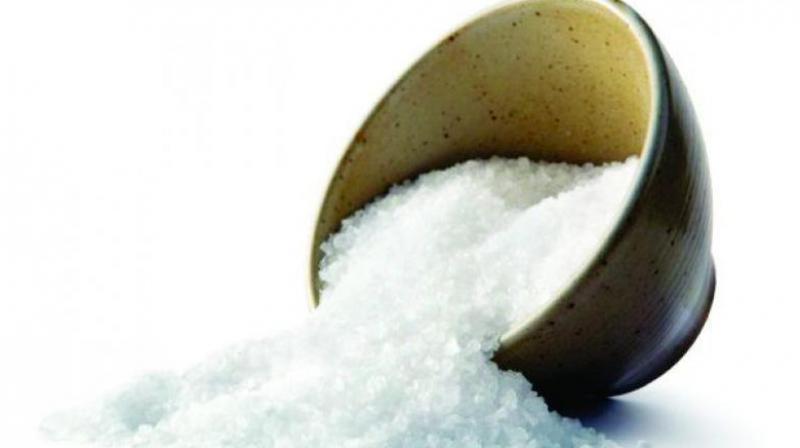Salt consumption level of Indians highest in world
The prevalence of raising blood pressure in India is around 26 percent and is considered to be a leading cause of death.

Chennai: With the Indian salt consumption rate having been found to be the highest in the world, and there being no account of the amount of salt that is directly or indirectly consumed here, doctors in Chennai stress on the need for people to limit their salt intake.
The prevalence of raising blood pressure in India is around 26 percent and is considered to be a leading cause of death, stroke, myocardial infarction, congestive heart failure, and chronic renal impairment. “About one in three of all adult Indians have high blood pressure, making it a major public health burden. Five out of the top 10 causes of deaths in India are now due to Noncommunicable Diseases (NCDs),” said Dr Vivekanand Jha, executive director, George Institute for Global Health, India, which, along with Arogya World, convened a salt summit in the capital city recently.
With high blood pressure seen as a common factor, in all age groups, in the country, doctors urge for a better realisation among the public that salt reduction is much required in India.
“Excess salt is one of the main contributing factors in the increased burden of NCDs today. Nutrition labelling has a strong connection with NCDs. No company selling food products specifies how much salt their product contains for the fear of the public becoming aware of the truth,” said Amit Kurana, programme manager, Food Safety and Toxins, Centre for Science and Environment (CSE).
One of the targets in India’s action plan for meeting the NCDs is 30 percent relative reduction in the mean population intake of salt/sodium, which will also directly help in achieving the other target which is 25 percent relative reduction in raised blood pressure.
“Only if everyone unites in an effort to cut down on salt consumption, can India achieve its target of bringing down the burden of NCDs. We need action from the Government of India, food manufacturers, the private sector, restaurants, street vendors, cafeteria managers, housewives, civil society and the academic and research community to ensure that the country’s aim to check NCDs is met,” said diabetologist in the city Dr V. Gnanaraj.

